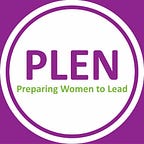Learning Unintentional Lessons
I was coming home from Thanksgiving break when I first heard about PLEN. Standing at my doorstep, going through the various emails that had accumulated while I was out of town, I received an email from my mentor. She described PLEN as an opportunity to network, visit capitol hill, and understand the creation process of global policy. Reading the email, I was overjoyed and overwhelmed. I had never been to Washington DC, networking was a foreign concept, and I thought my knowledge was limited. There were major doubts leading up to the conference and I lost most of my excitement as it came closer because I felt as though I was an imposter.
PLEN reversed the doubts and fears I held, taught me professionalism and networking, and showed the various methods of creating global policy. The entire week, the speakers tore apart the lies that I was not smart enough, rich enough, cool enough to be successful. They instructed me how to conduct business greetings and abolished the myths that surround networking. All the actors involved in creating global policy explained their roles and the importance of including diversity in the creation process.
Pulling up to the hotel Sunday night before the seminar my stomach was in knots. My mother tried to encourage me and remind me of who I am, but I was unresponsive to her encouragement and proceeded to stress about the week. This stress faded as soon as I walked in the hotel room and was greeted by two nervous young women who did not know each other or what to expect. This was the first lesson I learned at PLEN: that I am not alone. PLEN taught me this without explicitly trying to teach anything, and that was how much of the week would be- me learning unintentional lessons.
Imposter Syndrome is the root of the doubts and fears I had. Before coming to the seminar, I was not even aware my feelings possessed a name and that there was a way to overcome them. Walking into the first session, I sat in the very back next to my two roommates who were the only familiar faces. The panel dispelled the doubts that I was facing. All of the women had no prior connections to Washington DC or very affluent parents, however, they all succeeded and believed in their abilities. The greatest challenges they faced stemmed from inner doubts, which they overcame. They did so by understanding and believing they were smart enough. They realized that continuing to think negatively would result in negative results. They expressed the importance of asking for what you want and not being worried that you were rude or mean. The only way to overcome the doubt is to prove it wrong by applying for the management job and knowing you will be a great boss. The women proved that you do not need strong connections automatically to get where you want to go. You need the confidence that you will succeed in leadership roles, and to foster a mentor relationship that is mutually beneficial. If you want to get somewhere research how others did it, ask them about their experiences and do not forget to give back and mentor others. The panelists helped me throw off the imposter syndrome and believe I was a professional.
The panelists taught me that the three steps to succeeding in professional interactions are pre-research, genuine connection, and maintaining these connections with post-communication. Coming into any meeting, interview, or reception, it is integral to have done research. The research will ensure that you have the most successful interactions, you will be able to find connections between you and the parties involved in the meetings, and you can foster a genuine relationship. The research allows you to prepare yourself with a personal narrative that highlights your relevant strengths during an interview. Fostering a genuine interaction is just as important to having professional interactions. Nervousness and cockiness are sure to prevent you from having these interactions; it is always the best to be true to yourself. Being completely you will allow you to determine if you genuinely like the organization, its people, and culture. Comfortability in the organization or group will often determine how long you stay or how far you go within it. After creating strong connections it is important to express gratitude or interest. Thank you letters, follow up emails, updates are all successful post communication methods to solidify the relationships and ensure they will continue.
Congress, NGO’s, The U.S. State Department, and interest groups are all involved in the creation of global policy. Prior to the seminar, my understanding was limited and now I have the ability to explain the various routes to creating policy and implementation. I had the opportunity to simulate the implementation with the State Department which proved to myself that I had the ability and desire to become a foreign service officer. I am prepared to negotiate a salary, to apply for positions and internships confidently. Going to PLEN’s Women in Global Policy Seminar equipped me with strategies of success.
Learn more about this seminar — Submit to The Plenary — Donate to the PLEN Scholarship Fund
Allecia Jones attended the 2018 Women in Global Policy seminar with a scholarship sponsored by Marti Estell. She currently attends the University of Oklahoma and will graduate in the Spring of 2019.
